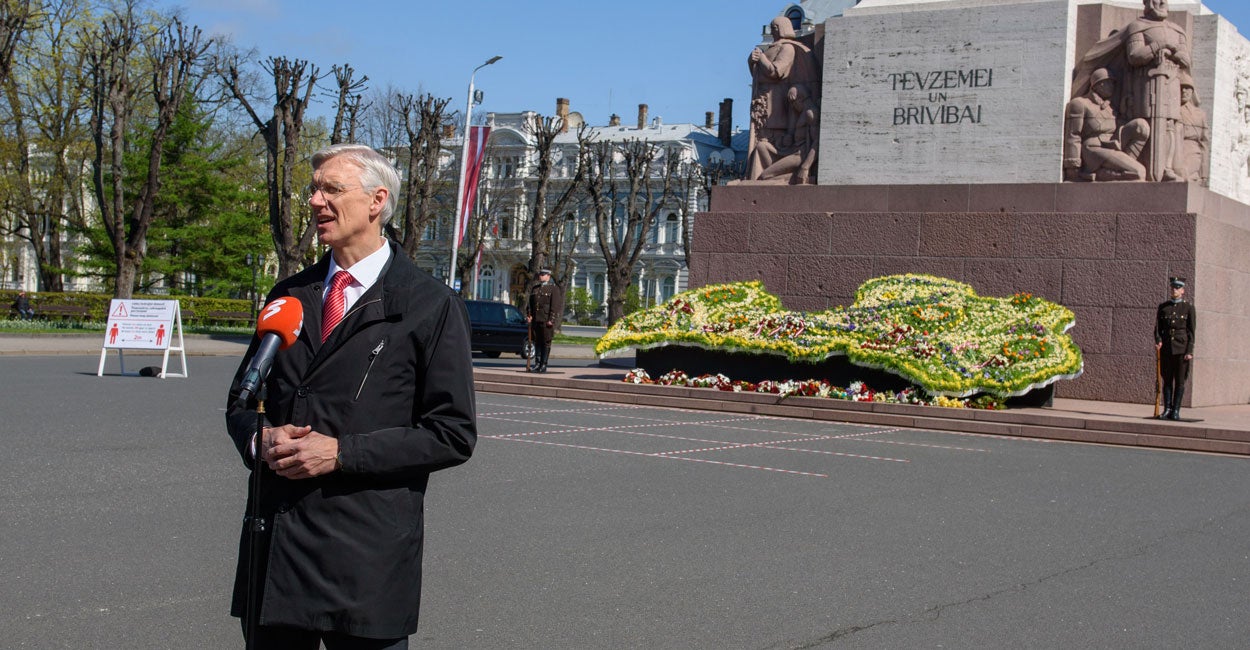Latvian Prime Minister Krisjanis Karins has made a timely case that the U.S. and its allies should foster increased economic freedom as the world reels from the economic impact of COVID-19.
At a Heritage Foundation event Tuesday on a transatlantic agenda for economic cooperation, Karins underscored the importance of continuing reforms, enhancing competitiveness, and revitalizing economic dynamism.
The Daily Signal depends on the support of readers like you. Donate now
Echoing recommendations put forth in a recent Heritage study, he emphasized transatlantic community cooperation on key issues, such as free and open trade under the rule of law, collaboration on the future of 5G technology, and the Three Seas Initiative, which aims to facilitate interconnectivity through digitalization, energy, and infrastructure projects in Central and Eastern Europe.
>>> What’s the best way for America to reopen and return to business? The National Coronavirus Recovery Commission, a project of The Heritage Foundation, assembled America’s top thinkers to figure that out. So far, it has made more than 260 recommendations. Learn more here.
Karins summed up his remarks with an unambiguous and timely reminder: “Like-minded countries need to stand together.”
Indeed, as the final report of The Heritage Foundation’s National Coronavirus Recovery Commission strongly recommends, “empowering economic freedom and partnerships in free markets” must be an integral element of rebooting our economic livelihoods and accelerating the global economic recovery.
Latvia is well-positioned to be just such a partner.
The small Baltic country has successfully flattened the COVID-19 curve, with the number of deaths caused by the virus there one of the lowest in Europe.
Although there was no official “lockdown,” the small and open economy did take swift action that resulted in a speedy decline in new virus infections and helped to avoid an abrupt halt of the economy while containing the pandemic.
Although uncertainty lingers, the Latvian economy has benefited from its high degree of resiliency built up over the past 25 years.
According to The Heritage Foundation’s annual Index of Economic Freedom, which compares the entrepreneurial frameworks of countries around the globe, Latvia’s economic freedom score has risen significantly over time and is now well above the regional and world averages.
Latvia’s ongoing transition from a onetime Soviet satellite state to a more vibrant and market-oriented economy has been facilitated by openness to foreign trade and the efficiency of business regulations that promote entrepreneurial dynamism. The Northern European nation has maintained fiscal discipline and enhanced its banking sector.
The country’s economic growth has been solid, averaging above 3% annually over the past five years prior the outbreak of the pandemic, with no significant economic imbalances in place.
Inflation has been moderate, and competitiveness has held up. Surely, it is this fiscal space of low government debt and stability that offers Latvia the built-in resilience to react proactively to the unexpected shocks of the pandemic and navigate through lingering uncertainty.
As policymakers in the U.S. and Europe think about how to effectively revitalize economic dynamism, Latvia is well-positioned to strengthen our understanding of how to successfully navigate the crisis.
The adversaries of free-market democracies will seek to use the COVID-19 pandemic to divide the United States from its like-mined allies, to sow division through disinformation, and to exacerbate uncertainty.
They must not be allowed to do so. The months ahead are the time for Washington and its transatlantic partners to stand strong and steadfast and to gear up for a new era of cooperation.































